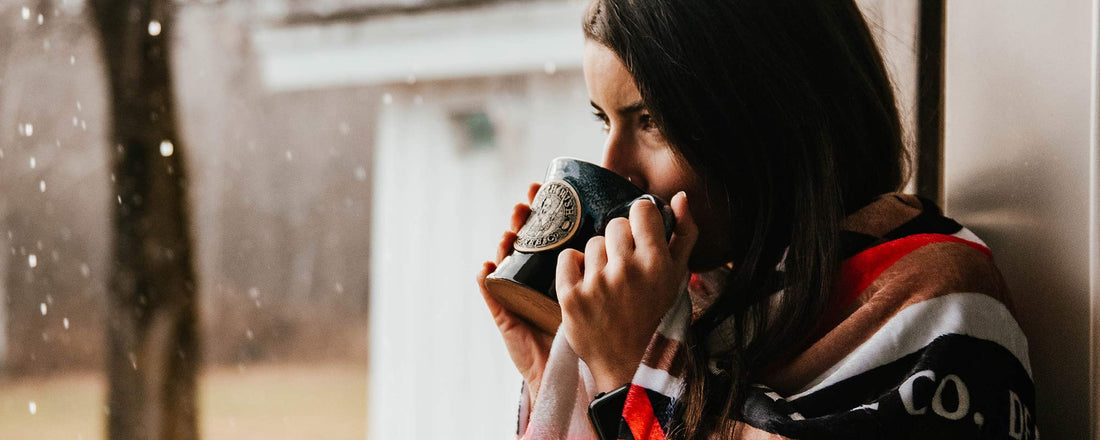
How Addicted to Coffee Are You?
LifestyleEverything You Need to Know About Caffeine Addiction
Coffee is very much a part of us. A morning (afternoon or evening) pick-me-up is our religion. We dream about it. We obsess about getting our next fix. We keep breath mints handy at all times for close encounters of ANY kind. For over 50% of Americans—that’s 150 million people—a morning cup of coffee signifies a new day and creates the kickstart required to survive the expectations of our waking hours.
In the United States, coffee is the most common source of caffeine, followed by carbonated soft drinks and teas. But despite the tastebud bliss, jolt of energy and several health benefits it offers, all of that caffeine can lead to caffeine dependency.
Quitting coffee may seem like a back-asswards type of nonsense. Leaving the adored, dependable, aroma-filled bag of fresh beans and replacing it with an unworthy substitute is something no one wants to experience. However, if you drink coffee or beverages that contain caffeine daily, you may suffer from withdrawal symptoms if you do cut back.
5 Symptoms of Caffeine Withdrawal
1. Headaches.
Many pain medications contain caffeine, as it can aid with pain relief. Caffeine helps to lower inflammation and increase the strength of other pain medications. Caffeine also restricts blood vessels in the head. Going without it can keep the blood vessels diluted, which can cause headaches. With some patience, your body will readjust in a few days.
2. Fatigue.
Caffeine, of course, gives you that jolt of energy you long for every morning, fighting fatigue and drowsiness throughout the day and ensuring you stay alert to rock out the honey-do list with ease. However, when your caffeine intake suddenly changes and you cut back, you’ll notice you feel more tired and generally foggy during the day. Although satisfying your coffee craving early on in the day may keep you feeling like you can survive a post-apocalyptic wasteland, it’s not the best treat for the evening right before bed. You may find cutting back will help you get a better night’s rest.
3. Weight Gain.
Coffee temporarily suppresses your appetite, helping you say no to unnecessary breakfast treats like donuts, scones, etc. Without your appetite suppressant, you may find yourself reaching for one or more of those treats because you “donut” care. You’re hungry!
Reaper’s Pro Tip: If you favor the popular latte overflowing with whipped cream for your morning cup, it could be doing a number on your waistline. Cutting out those sugary additives could save you time, money and calories too.
4. Muscle Pain and Stiffness.
Cutting back on caffeine might also make you feel like you’re coming down with the flu. That's because when your caffeine intake changes, you may feel achy all over, experience muscle pain, cramping and stiffness too. Your normal walking and light exercise might suddenly feel like a big pain in the ass (quite literally).
5. Feeling like sh*t (temporarily).
Aside from caffeine withdrawal headaches, those who have limited their caffeine intake have also reported side effects like depression, anxiety, dizziness, flu-like symptoms, insomnia, irritability, mood swings and sluggishness. That’s because caffeine is a stimulant that simply makes you feel good. So if you cut back, just know that you won’t feel like garbage forever. Hold on tight for the next couple weeks, and getting off that crazy roller coaster will be a breeze.

5 Ways to Ease Caffeine Withdrawal Symptoms
1. Take Pain Relievers.
Taking ibuprofen, aspirin and Tylenol can help to ease a headache brought on from caffeine withdrawal. These medications can also help with any muscle tension or stiffness you may experience along the unpleasant journey.
2. Exercise.
Although you won’t feel you have the energy or motivation to exercise, it will make you feel better—guaranteed. Exercising causes the release of dopamine, which is now in short supply because of the absence of caffeine. You’ll need all the dopamine you can get, so get a move on.
3. Eating Healthy.
By improving your diet, you’re giving your body all the correct nutrients it needs to function properly. Eating plenty of fruits and vegetables will promote natural energy and a more positive mind.
4. Hydrate.
Drink water. Then drink more water. Repeat (again and again and again.). Remaining hydrated can help ease almost any discomfort. Water is a miracle, so chug.
5. Rest.
Plan to throw your caffeine intake to the wayside on a weekend when you have no obligations. Sleeping a lot within the first couple of days is very common.
If you feel you have a caffeine dependency, you join lots of other people who are equally dependent on the java. If you are doing this for a health reason or as recommended by a doctor, try cutting back a little bit instead of completely. Caffeine withdrawal symptoms usually start about 12-24 hours after you stop having caffeine, and withdrawal can last anywhere from 2-9 days. Remember it takes time, but it is certainly attainable with some patience.
Obviously, quitting anything cold turkey just sucks. So that’s a really easy fix. Don’t quit the caffeine and keep enjoying the elixir of life. Besides its great taste and the aromatic bliss it offers, coffee’s got some health perks, so keeping it in your life in a beneficial way is a great idea.
RELATED: Can Coffee Make You Sick?

